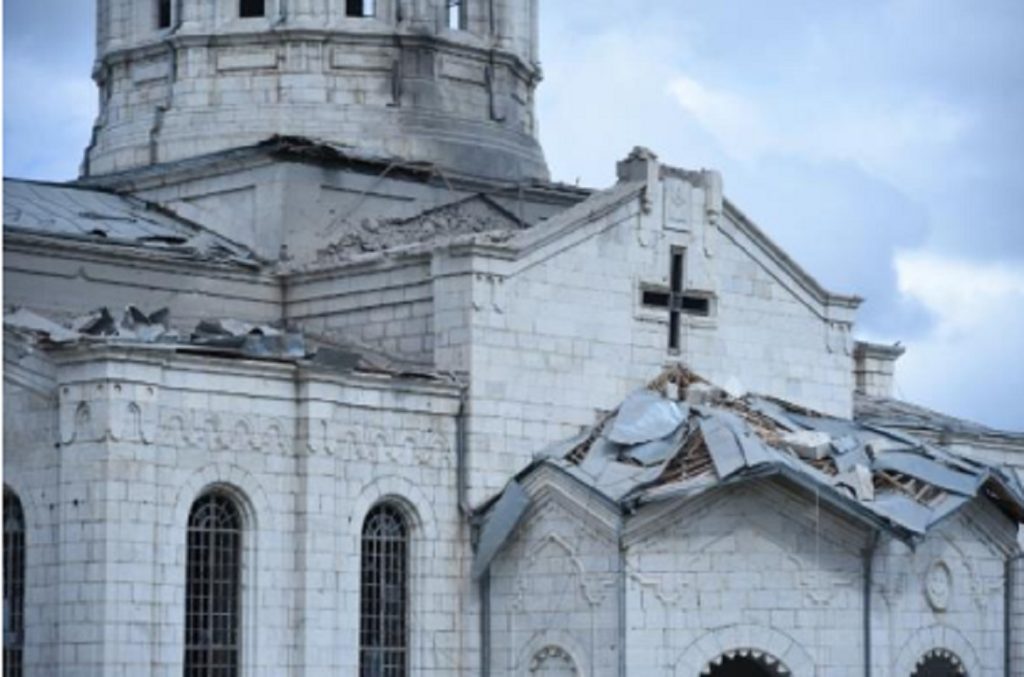“We always say about the people of Nagorno Karabakh that they do not just survive; they create beauty from the ashes of destruction. Even during these darkest days of war, it has been humbling and inspiring to witness the ‘Spirit of Armenia’ rising like a Phoenix from the ashes of death and destruction, as the people share the love of their land, their history and their rich culture of music, dance and art, all in the context of the breath-taking beauty of their land’s rugged mountains, thick forests, fertile valleys and crystal rivers”.
Humanitarian Aid Relief Trust (HART) release the findings from their November 2020 visit to Armenia and Nagorno Karabakh.
The report highlights, among other things, the justifiable fear among Armenians in Nagorno Karabakh of the possibility of ethnic cleansing from their historic land. The presence of Russian peacekeepers provides short-term relief. But a cloud of uncertainty hangs heavy over civilians, who expressed the following priorities:
1. Self-determination: The Armenians of Nagorno Karabakh are engaged in a process of their independence on an equivalent legal basis as Azerbaijan in 1991. They have sufficient evidence to claim the same right of self-determination as the people of Timor Leste, Eritrea and Kosovo, who were awarded self-determination for suffering comparable attempted ethnic cleansing
2. No more impunity: There is now an urgent need to end the impunity with which Azerbaijan, supported by NATO-member Turkey, has carried out such systematic, wide-ranging and brutal violations of human rights. To date, neither state has been held to account for its actions by the international community, despite evidence of recent and ongoing atrocities and war crimes.
3. Treatment of prisoners: There are video evidence of brutality inflicted on military and civilian prisoners, including torture and beheadings, and heard claims that equivalent brutalities have been perpetrated by foreign jihadist fighters who receive payment for every Armenian beheaded. All relevant international authorities must take effective measures to prevent Azerbaijan from abusing and killing these prisoners, whom they have already captured or may capture during the ceasefire evacuation.
4. Humanitarian aid: Over 14,000 civilian structures in Nagorno Karabakh were reportedly damaged or destroyed during 45 days of conflict, including schools, hospitals, roads or electricity networks. Heavy shelling has also caused significant displacement of the civilian population. An urgent plan of protection, economic support and development is needed to create an environment that makes it easier for people to return.
5. Safeguarding cultural and religious sites: There is a deep fear that Azerbaijan will destroy Armenian Christian monuments and cultural heritage sites in territories under its control, including churches and holy crosses as they did in Nakhichevan. The OSCE Minsk Group should define these sites and artefacts (some of which are 1,500 years old) as vulnerable targets and ensure that comprehensive measures are in place for an immediate response to an attack.
6. Suspension of military supplies: American-led NATO, the Russian-led CSTO, and the Government of Israel must suspend the provision of all lethal and non-lethal military supplies and technical assistance to Azerbaijan until Azerbaijan renounces the use of violence against the Armenian Christians of Nagorno Karabakh.
7. Chemical weapons investigation: The use of chemical incendiaries, possibly phosphorus, is extremely dangerous for civilians as and livestock. There are photographs taken by reputable sources of people suffering from serious burns and of killed animals. The use of such weapons would ignite the very woodlands to which civilians had been forced to flee. We urge the Organisation for the Prohibition of Chemical Weapons to undertake an investigation to establish whether chemical weapons have been used and to ensure assistance to protect civilians against the effects of such an attack.
Read and download the full report Grief and Courage in Ngorno Karabakh







